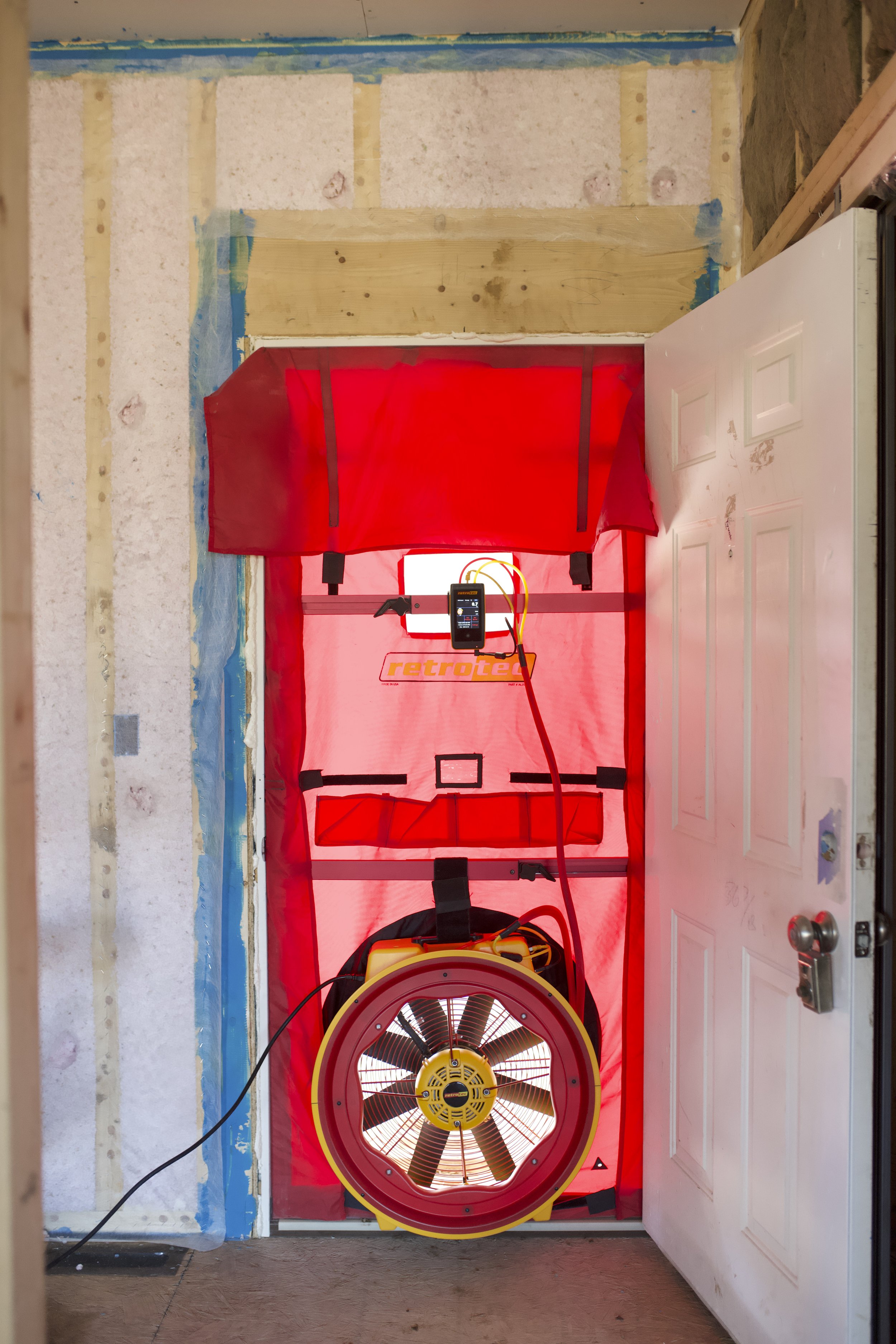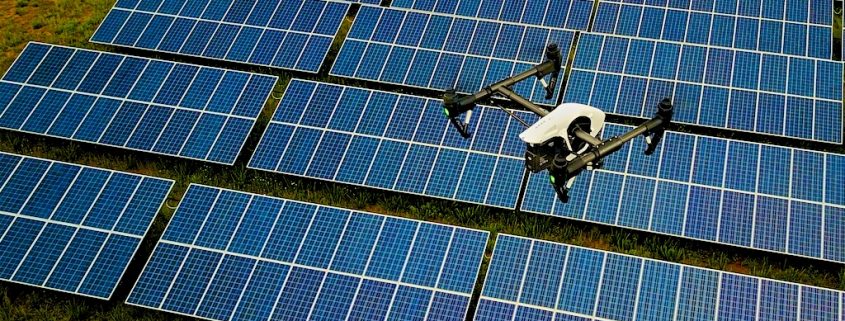The homeowner’s guide to air tight solutions and smarter efficiency improvements
The homeowner’s guide to air tight solutions and smarter efficiency improvements
Blog Article
How Power Testing Can Lead to A Lot More Lasting Living Solutions
Energy screening is an important tool for promoting sustainable living. It reveals inadequacies in power use within homes. Techniques such as power audits and thermal imaging provide valuable understandings. Property owners can identify areas requiring improvement, from insulation to appliances. Dealing with these inefficiencies can bring about substantial energy savings. Lots of remain unaware of the full potential of these techniques. What actions can individuals require to improve their homes and add to a much more sustainable future?
Understanding Energy Screening and Its Value

Typical Methods of Power Testing
There are a number of usual techniques of power testing that home owners can utilize to assess their power effectiveness (air tight solutions). One extensively made use of strategy is the blower door examination, which measures the air leak in a home. By pressurizing the structure, it recognizes breezy locations that might call for securing. One more technique is thermal imaging, where infrared video cameras detect temperature variations in windows, walls, and ceilings, highlighting insulation issues.Energy audits are additionally prominent, including an extensive analysis of a home's energy use, typically conducted by an expert. These audits may consist of reviewing heating and cooling systems, home appliances, and general power intake patterns. Additionally, clever energy meters can give real-time information on energy usage, aiding house owners recognize their consumption behaviors. With each other, these methods offer useful understandings, enabling homeowners to make informed choices regarding improving their power performance and advertising sustainable living techniques
Identifying Power Inefficiencies in your house
Determining power ineffectiveness in a home is important for homeowners intending to decrease energy usage and reduced energy costs. Common locations to evaluate consist of insulation, windows, and home appliances. Poor insulation can lead to substantial warmth loss in winter months and undesirable warm gain in summer season, making heating and air conditioning systems work harder. Breezy home windows add similarly, enabling conditioned air to escape and raising power demand.Additionally, outdated appliances frequently consume a lot more power than their modern counterparts, even more worsening inefficiency. House owners need to also take into consideration the lights system, as incandescent bulbs use even more power contrasted to LED options.Regular upkeep of a/c systems is vital, as forget can result in minimized effectiveness. By systematically examining these facets of a home, house owners can pinpoint areas needing improvement. Resolving these inefficiencies not just boosts convenience but also contributes to a much more lasting way of living by minimizing energy waste.
The Duty of Power Audits in Sustainability
Power audits play a vital function in promoting sustainability by supplying house owners with a comprehensive analysis of their power usage. These assessments determine locations where power is lost, allowing individuals to comprehend their usage patterns and make notified decisions for enhancement. By exposing inadequacies in home heating, cooling, insulation, and appliances, energy audits serve as an important device for minimizing overall energy demand.Furthermore, they assist in the execution of energy-saving steps, such as upgrading insulation or installing energy-efficient lights, which can substantially reduce utility expenses and lower carbon footprints. The insights obtained from a power audit equip home owners to prioritize sustainability in their living atmospheres. As even more homes engage in this procedure, the collective influence adds to more comprehensive environmental objectives, fostering a society of power consciousness and responsibility. Eventually, energy audits are fundamental to progressing sustainable living remedies, profiting both specific home owners and the setting at large.
Cutting-edge Technologies for Energy Performance
As homeowners increasingly look for to enhance their energy effectiveness, ingenious technologies are emerging to sustain these undertakings. Smart home systems, geared up with sensing units and automation, allow home owners to control and check power consumption in real-time. These systems can readjust air conditioning, lighting, and home heating based on tenancy, thus reducing waste.In enhancement, advancements in energy-efficient devices have made significant strides. Instruments such as ENERGY STAR-rated refrigerators and washing devices take in much less energy while supplying suitable performance. The integration of eco-friendly energy sources, like solar panels and wind generators, enables house owners to generate their own power, decreasing dependence on nonrenewable resources.Building materials have actually also progressed, with choices like insulated concrete forms and energy-efficient home windows contributing to minimized energy loss. Together, these ingenious modern technologies not only improve energy efficiency however additionally cultivate a more lasting living environment, equipping home owners to make impactful options in their power consumption techniques.
Long-Term Benefits of Sustainable Living
While numerous might see sustainable living as a pattern, use this link its lasting benefits extend far beyond mere way of life selections. Accepting sustainable methods brings about considerable decreases in carbon footprints, contributing to a much healthier world. By lessening resource usage and prioritizing renewable resource, people and areas can experience lower utility costs. This economic alleviation can enhance economic security gradually, enabling reinvestment in other crucial areas.Furthermore, sustainable living fosters more powerful community ties as individuals collaborate on neighborhood efforts, promoting social communication. Health advantages additionally emerge, as decreased contamination and increased green areas boost air quality and general well-being. In addition, future generations will inherit a more sustainable environment, ensuring the accessibility of all-natural resources and biodiversity. Ultimately, the long-term advantages of sustainable living include environmental, economic, and social dimensions, offering a compelling situation for people to embrace and keep these practices for the higher good.
Actions to Carry Out Energy-Saving Solutions
Implementing energy-saving services begins with a detailed assessment of energy consumption patterns to identify areas for renovation. When these patterns are recognized, individuals can determine energy-efficient upgrades that line up with their demands. Continuous surveillance and modifications to power usage guarantee that these services continue to be effective over time.
Evaluate Energy Intake Patterns

Evaluating energy consumption patterns is a crucial step towards recognizing reliable energy-saving remedies. By methodically tracking usage across different times and individuals, companies and devices can pinpoint locations of excessive intake. This evaluation can disclose peak usage durations, allowing a far better understanding of when power needs are highest possible. Furthermore, analyzing patterns permits contrasts in between similar appliances, highlighting those that run less successfully. Data collection approaches, such as wise meters and energy audits, give important understandings right into overall power usage. Determining trends over time can aid in acknowledging seasonal variations and shifts in usage behaviors. This fundamental expertise is essential for establishing targeted strategies that advertise sustainable living and lower overall power expenditure.
Determine Energy-Efficient Upgrades
To successfully execute energy-saving services, determining energy-efficient upgrades is crucial for both property owners and businesses. This procedure begins with a detailed evaluation of existing systems, consisting of HVAC units, insulation, and home appliances. Upgrades might encompass installing power STAR-rated home appliances, improving insulation, and making use of energy-efficient home windows. Furthermore, executing wise thermostats can maximize heating and cooling timetables, reducing energy usage. Moving to LED lighting is another efficient action, as it takes in considerably much less power than typical light bulbs. Additionally, exploring renewable resource options, such as solar panels, can provide long-lasting cost savings. Ultimately, focusing on these upgrades not only adds to minimized power expenses yet likewise fosters a commitment to sustainability, benefiting both the setting and future generations.
Monitor and Readjust Usage
Monitoring and readjusting power usage is essential for making the most of the benefits of energy-saving solutions. Consistently reviewing energy intake patterns permits organizations and people to identify areas for enhancement. By using wise meters and energy monitoring systems, customers can track real-time use and discover any type of anomalies that might suggest inefficiencies.Adjusting actions, such as transforming off lights and disconnecting unused tools, additionally improves energy cost savings. Additionally, organizing home appliances to operate during off-peak hours can considerably reduce costs.Conducting periodic energy audits warranties that applied options stay efficient gradually. By actively participating in monitoring and readjusting techniques, people can maximize their energy performance, add to sustainability efforts, and ultimately minimize their environmental footprint.
Regularly Asked Concerns
Just how Much Does a Power Audit Normally Cost?

Can Energy Testing Help In Reducing Utility Costs?
Energy testing can noticeably decrease energy costs by identifying inadequacies in a home's energy usage. By dealing with these concerns, house owners commonly experience reduced usage and costs, leading to even more economical energy monitoring and boosted monetary savings.
What Qualifications Should an Energy Auditor Have?
An energy auditor ought to have relevant qualifications, such as RESNET or BPI, alongside experience in building scientific researches. energy testing south carolina. Solid analytical abilities and understanding of energy performance methods are essential for performing accurate assessments and offering efficient suggestions
Are There Government Incentives for Energy Performance Upgrades?
Federal government motivations for power efficiency upgrades usually exist, consisting of tax discounts, credit ratings, and grants. These programs aim to urge property owners and organizations to invest in energy-saving innovations, eventually promoting ecological sustainability and reducing general power usage.
Just how Typically Should I Conduct Power Screening in My Home?
Power screening ought to preferably be carried out each year to identify inadequacies. Home owners may consider a lot more constant analyses after substantial improvements, adjustments in power costs, or if uncommon drafts or temperature variants are discovered within the home. Power testing makes it possible for the evaluation of exactly how well a home uses power, identifying areas where waste happens. Recognizing power ineffectiveness in a home is necessary for home owners aiming to decrease power consumption and reduced energy expenses. Energy audits play a vital function in advertising sustainability over at this website by giving home owners with a comprehensive analysis of their energy use. By revealing inefficiencies in heating, cooling, insulation, and devices, energy audits serve as an essential device for decreasing general energy demand.Furthermore, they promote the implementation of energy-saving procedures, such as updating insulation or mounting energy-efficient illumination, which can substantially decrease energy expenses and decrease carbon footprints. Power testing can considerably reduce energy expenses by identifying inefficiencies in a home's power usage.
Report this page